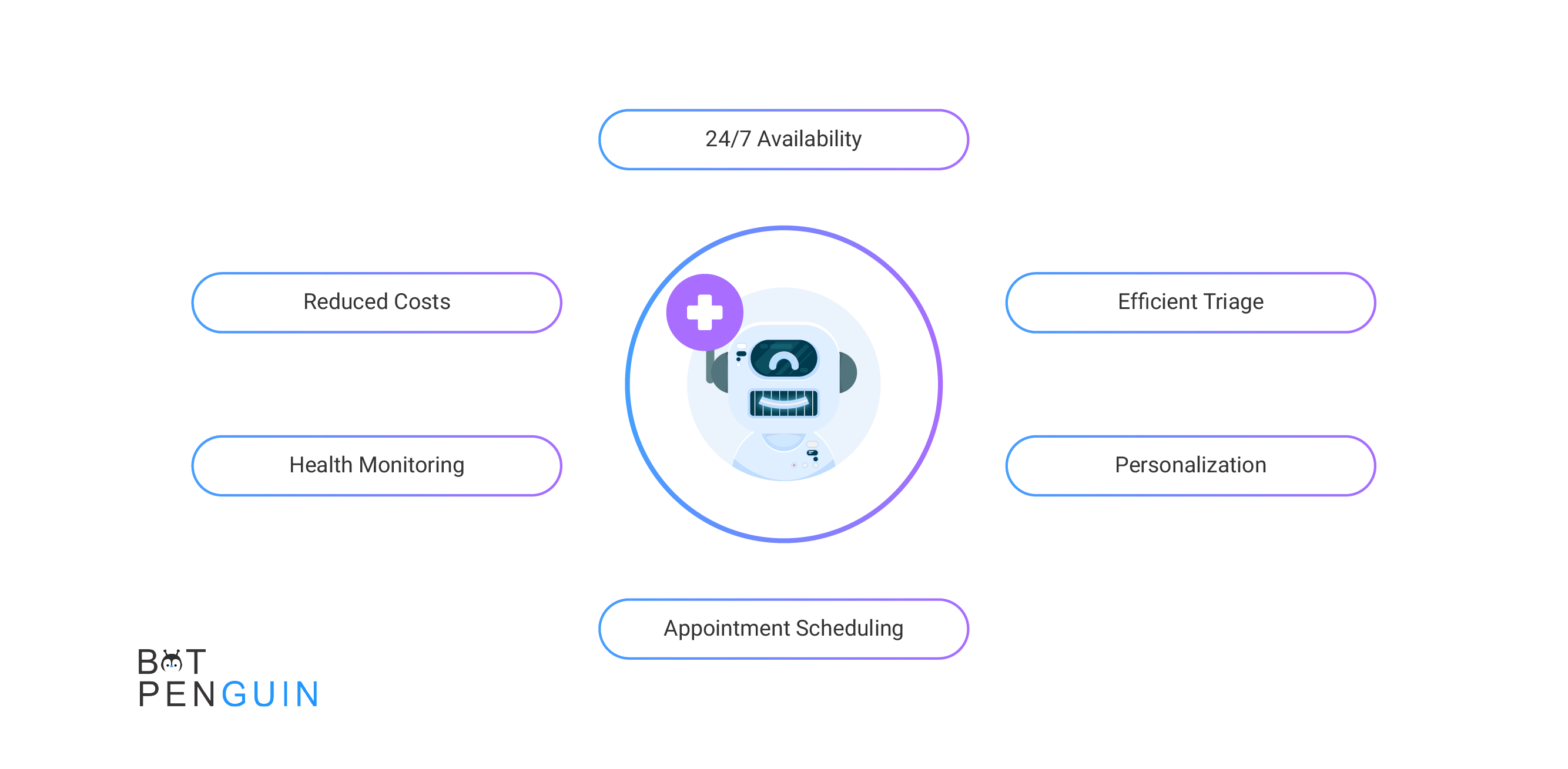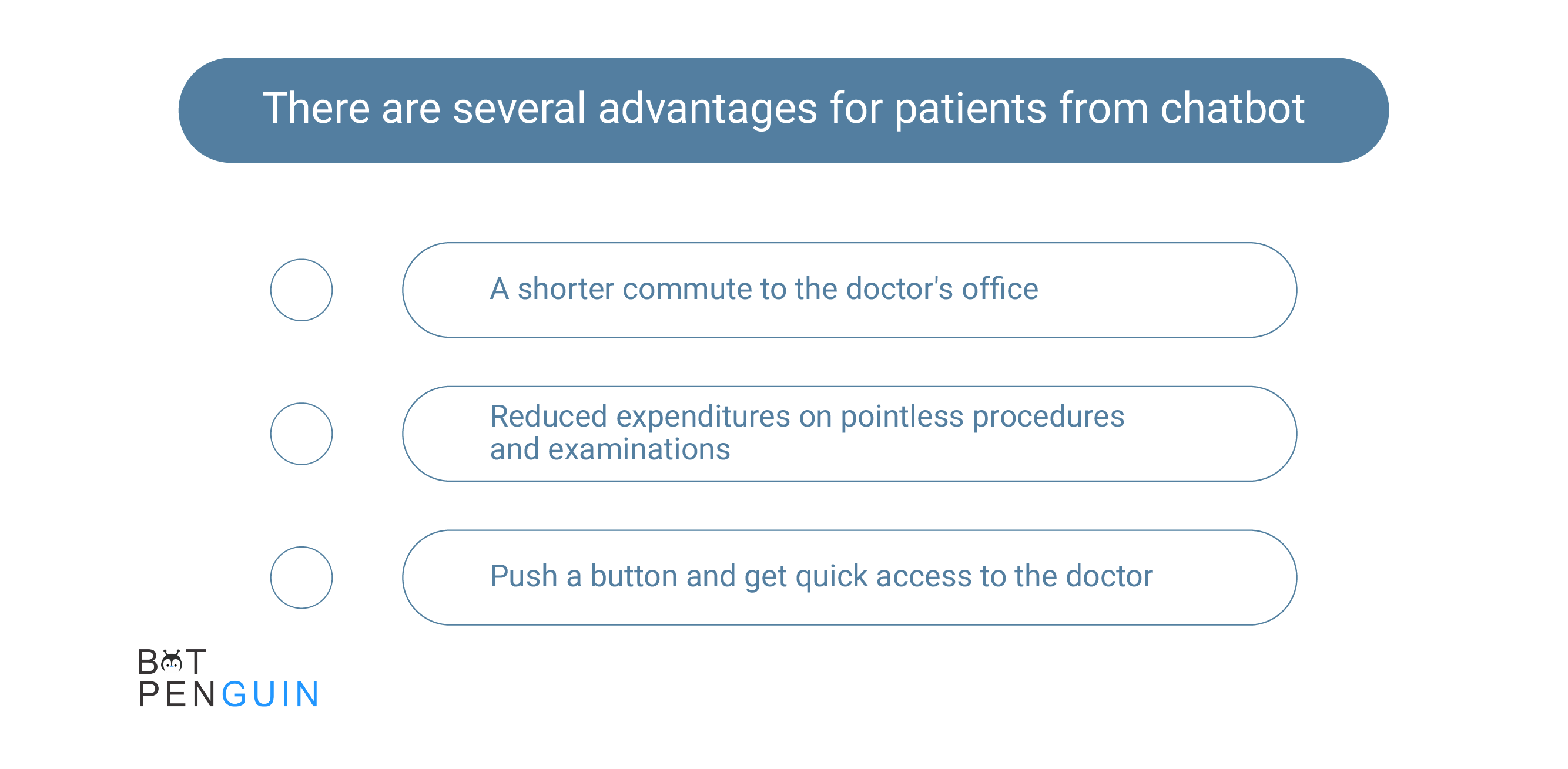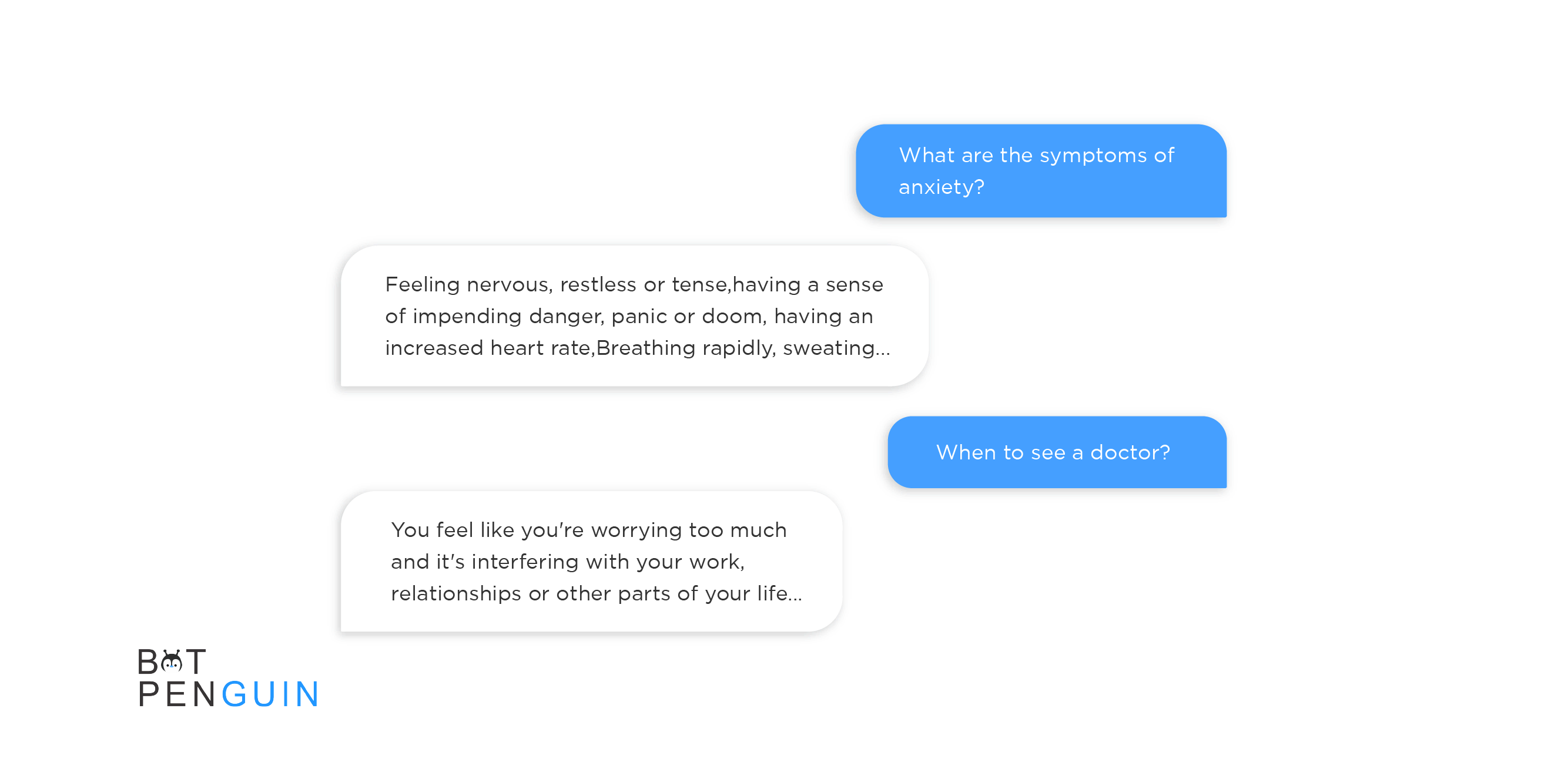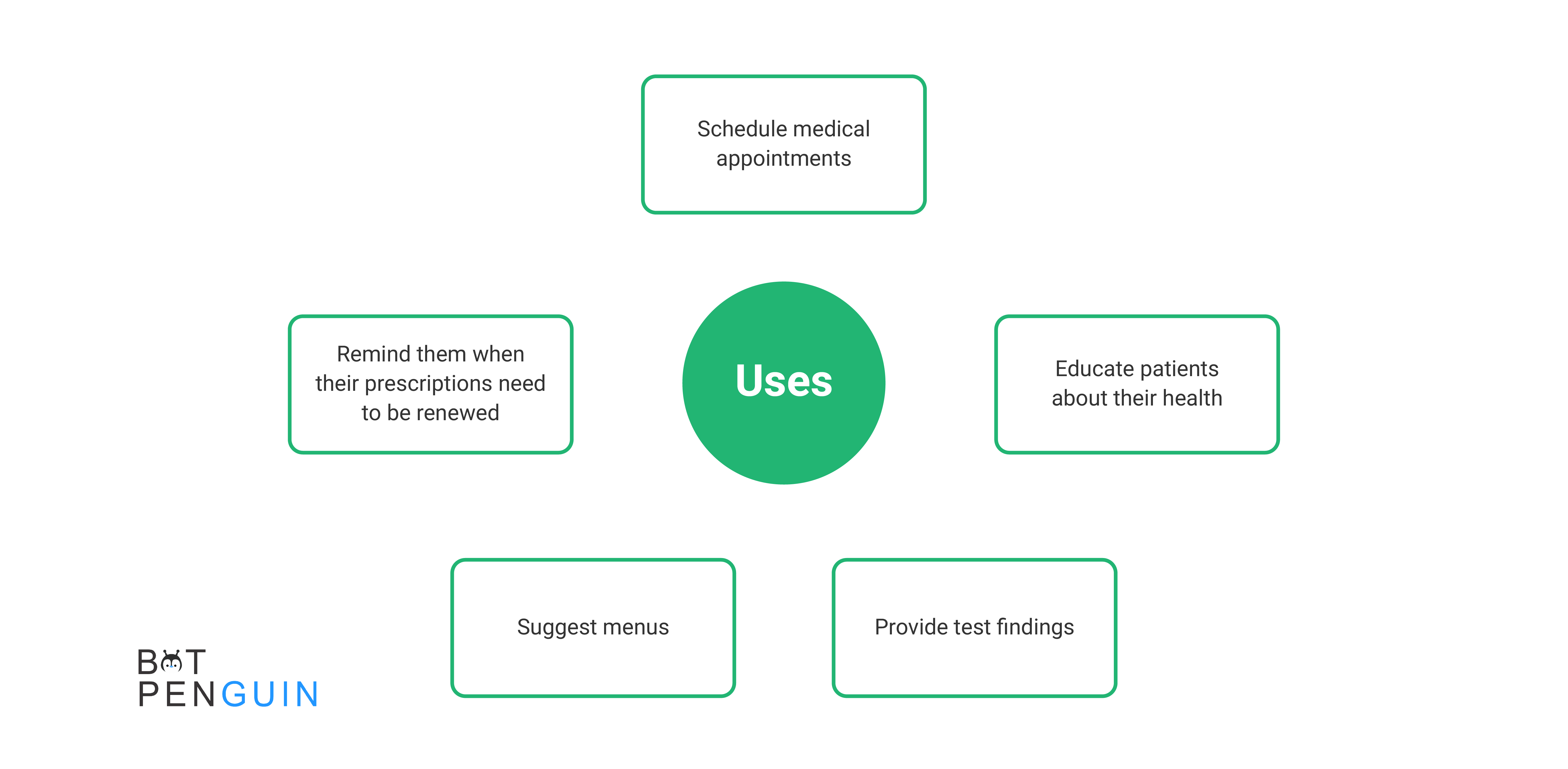Healthcare is now more critical than ever and is necessary for existence. According to a study, the majority of emergencies happen when you're unaware of them. Chatbots can assist you with keeping this knowledge readily available. Healthcare chatbots take care of all patient inquiries, offer all relevant information, and schedule appointments, freeing medical staff to concentrate on life-or-death crises.
The ability of AI chatbots to reduce overhead expenses is one of the main drivers of their popularity in the healthcare sector. Chatbots are a sure way to guarantee patient involvement and deal with staffing difficulties, especially in light of the rising prevalence of intelligent devices and quick internet access.
How can chatbots help in healthcare?
A 99.9% uptime is achieved through chatbots. Healthcare practitioners can deploy a chatbot to respond to their patients' most frequently requested inquiries. The chatbot may converse with patients regarding insurance-related issues such as coverage, claims, documentation, symptoms, business hours, and fast repairs.
Here are some features and benefits of chatbots in the field of healthcare:

- 24/7 Availability: Chatbots can provide round-the-clock assistance to patients, which can be especially useful for people who need help outside of regular business hours.
- Efficient Triage: Chatbots can help triage patients based on their symptoms and direct them to the appropriate level of care. This can help reduce the burden on healthcare providers and improve the overall patient experience.
- Personalization: Chatbots can provide personalized information and recommendations based on a patient's medical history, preferences, and other relevant factors.
- Appointment Scheduling: Chatbots can help patients schedule appointments, confirm appointments, and receive reminders.
- Health Monitoring: Chatbots can help patients monitor their health and track their symptoms, providing timely alerts and recommendations when necessary.
- Improved Patient Engagement: Chatbots can provide an engaging and interactive experience for patients, which can help increase patient engagement and education.
- Data Collection and Analysis: Chatbots can collect data on patient symptoms, treatment outcomes, and other factors, which can be used to improve healthcare services and inform public health initiatives.
- Reduced Costs: Chatbots can help reduce costs associated with patient engagement, administrative tasks, and other areas, which can help make healthcare services more affordable and accessible.
How can website chatbots benefit healthcare companies and hospitals in the USA?

Hybrid chatbots have many benefits, and all parties involved can gain from their use in the healthcare industry.
For once, medical chatbots lighten the stress of medical staff by lowering hospital visits, unnecessary treatments, and procedures, as well as hospital admissions and readmissions, as patient adherence to treatment and understanding of their symptoms advances. There are several advantages for patients from this:
- A shorter commute to the doctor's office
- Reduced expenditures on pointless procedures and examinations
- Push a button and get quick access to the doctor.
- According to experts, healthcare chatbots are expected to save $3.6 billion globally by 2023. Chatbots help reduce costs in the delivery of healthcare services.
How Healthcare Chatbots are Revolutionizing the industry
Let's analyze how healthcare chatbots are transforming the sector.
1. Customer service/patient engagement administration
Chatbots significantly raise patient satisfaction and, ultimately, retention by facilitating ongoing communication with patients. Patients are given a tool of continuing interaction that helps them address their worries and gain confidence.
2. Research/Therapy

Research and suggesting treatment are the most important areas where chatbots make the most contributions. Radiology, health records, imaging, telemedicine, and many more disciplines are now being researched using AI-powered chatbots.
3. Primary care at the entry-level and emergency first aid
The fundamental issue is the simple accessibility of false or misleading information, which is now only a click away with the help of chatbots. Furthermore, a dangerous condition may result from a lack of medical understanding.
4. A reliable helper in your pocket

The majority of bots that are accessible to the general public may function as personal medical assistants. These bots may help schedule medical appointments, educate patients about their health, provide test findings, suggest menus, and remind them when their prescriptions need to be renewed.
5. Remote patient monitoring
One of the most challenging aspects of recovery is remotely monitoring preoperative and postoperative patients. There are occasions when chatbots can be more effective at ongoing surveillance, even if nothing can compare to human-like help.
FAQs
What does the use of AI chatbots in healthcare look like?
Real-time advice on various subjects, such as fitness, food, and medicine interactions, is one example of how AI chatbots are used in the healthcare industry.
Conclusion
Chatbots are undoubtedly helpful. Healthcare professionals should include chatbots on their websites or mobile applications so that patients may regularly receive reminders about their appointments, timely medical advice, recurring reminders, and even invoicing. Patients might also benefit from it, in addition to the healthcare facility.
In the healthcare industry, AI chatbots are particularly beneficial since they lighten workers' workload. However, it would help if you clarified your expectations before chatbots are used in the healthcare sector.
Suppose you want to go with the top healthcare chatbot, select with a variety of templates available. In that case, BotPenguin is the perfect tool for healthcare designers, users looking to make appointments, and many more uses.


